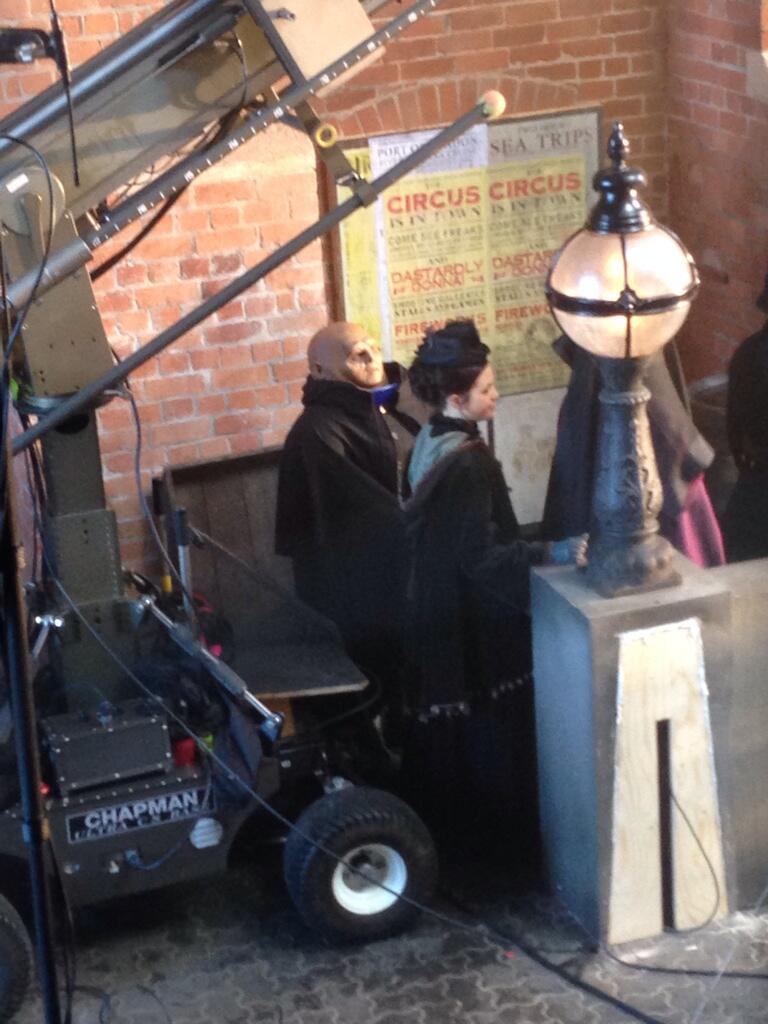Re: Steven Moffat Talks About The "Raw", "New Direction" For The Serie
Yes, taste is subjective. Which is why it's completely obnoxious to say that a version of the Doctor is "not Doctor Who" just because he's not your favorite version thereof.
Actually, it's completely obnoxious to take someone else's opinion that the show is not living up to their expectations of Doctor Who and addressing that opinion as one would address a hoard of barbarians ready to storm the gate.
And, in any case, taste is not entirely subjective. There are elements of fact in many aesthetic analyses. Somebody might find, for example, The Key to Time to be their favourite season of Doctor Who, and that may be perfectly valid, but that preference of taste needs to be separated from a statement about that season's artistic or narrative merit - it may be someone's favourite, but it is certainly not the best. And, if someone says, "The Key to Time is the best Doctor Who ever produced, while The Caves of Androzani and Blink are the two worst episodes ever," there is obviously something wrong with that statement. (One cannot convince someone, for example, to like grapes, or chocolate - that is entirely a matter of subjective taste. But since a person can be convinced, through dialogue, to appreciate a work of art they did not appreciate before, there is clearly an element of logic, or intellect, about one's appreciation for art.) Someone may enjoy Transformers 3 more than The Godfather, and that's entirely valid, but The Godfather is still a better film than Transformers 3 - that is, I would argue, an objective statement of fact.
Now, all of that said, does that mean Moffat's era of Doctor Who is objectively inferior to, say, Davies? Not necessarily. I feel it is. I feel it clearly. But since so many others have argued that they prefer Moffat's take on the show, I don't know what to think about that. The companions are clearly less developed (Amy and Rory and Clara are far more 2-dimensional characters than Rose and Donna, certainly.) The Doctor himself is clearly less complex (deliberately, it seems to me. Smith played the Doctor like a child. Tennant played it like an adult who, occasionally, like Tom Baker's Doctor, acted like a child. And Ecceleston was just awesome - who would argue with that?) And Moffat's take is clearly more about plot, and less about emotion, just as the show used to be before it came back in 2005.
Does that make the Moffat era inferior? I don't know. I suppose one could argue that Doctor Who is not about 3-dimensional characterization, or about sentiment or emotion. And you know what, for the majority of the show's history, they would be right. But Davies brought such a humanity to the show, such a 21st century television sensibility, that I feel a show without 3-dimensional characterization and a focus on character and emotion would be to go backward. And, in my view, Moffat's era of the show really didn't concentrate on making ANY of their characters (not the Doctor, not the companions) REAL in the way that Davies attempted to do.


